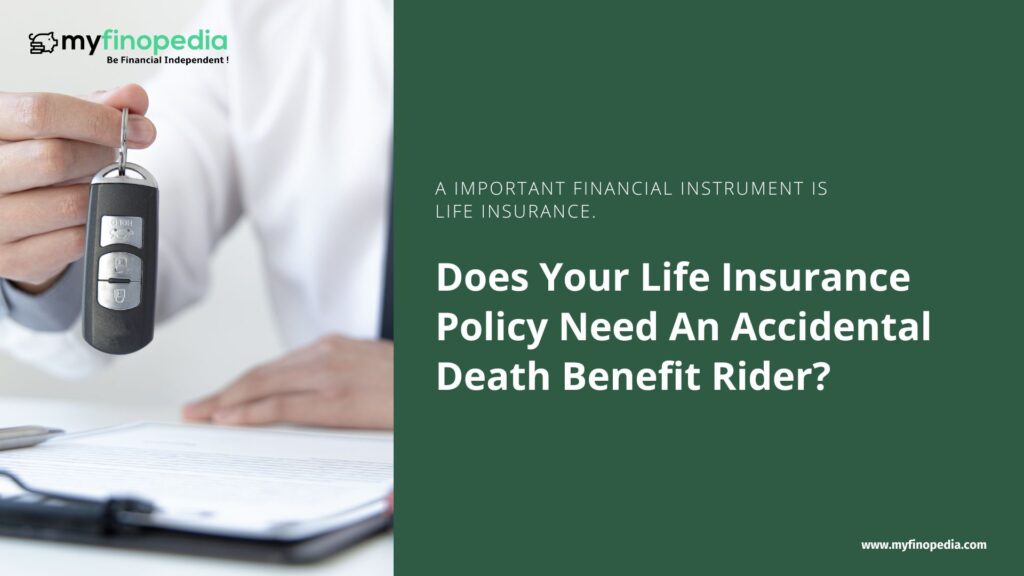Life insurance is a crucial financial tool that provides peace of mind and financial security to your loved ones in the event of your untimely demise. While traditional life insurance policies offer a straightforward death benefit, some individuals may wonder whether they should add an accidental death benefit rider to their policy. In this discussion, we will delve into the significance of an accidental death benefit rider, its pros and cons, and how to decide if it’s right for you.
Why is there a need for an accidental death benefit rider?
As a crucial component of financial planning, life insurance guarantees that your beneficiaries will receive a certain amount of money, known as the death benefit, in the event of your passing. No matter the reason of death—whether it was a disease, an accident, or a natural disaster—this reimbursement is usually assured. However, an accidental death benefit rider provides an extra level of security for fatalities brought on by accidents.
- Financial Protection-Accidental deaths might result in unforeseen financial consequences for the surviving family members, such as medical expenses or income loss. By contributing additional cash to cover these expenses, the rider can assist reduce these financial strains.
- Easily affordable-Accidental death benefit riders are a desirable choice for people looking for additional coverage without considerably raising their premium because they are frequently reasonable. If you have a tight budget for life insurance, this cost-effective option can be extremely alluring.
- Self assurance- It might be reassuring to know that in the event of an accident, your loved ones will get a greater settlement. In a trying period, it guarantees that their financial demands are covered.
But are there any disadvantages retorting to this scheme?
- You must carefully evaluate your individual risk factors before deciding whether to include an accidental death benefit rider. The rider might not be a cost-effective option if you don’t engage in high-risk activities and have a low possibility of dying accidentally. You could choose to invest in other financial or insurance products in such circumstances.
- The main drawback of an accidental death benefit rider is the narrow scope of coverage. This rider only pays out in the event that the policyholder perishes in a recognised accident. Natural causes of death, sickness, or diseases are not included. Due to this restriction, a number of frequently occurring causes of death are not covered, perhaps depriving your loved ones of the financial security they require in certain circumstances.
Conclusion- In conclusion, your circumstances and risk variables will determine whether you decide to add an accidental death benefit rider to your life insurance policy. If you engage in high-risk activities or worry about accidental death, it can be a useful supplement. Nevertheless, if you have complete coverage and a tight budget, you could give the normal death benefit priority. You may make a well-informed decision and customise your life insurance policy to suit your individual needs by speaking with a knowledgeable insurance agent.






